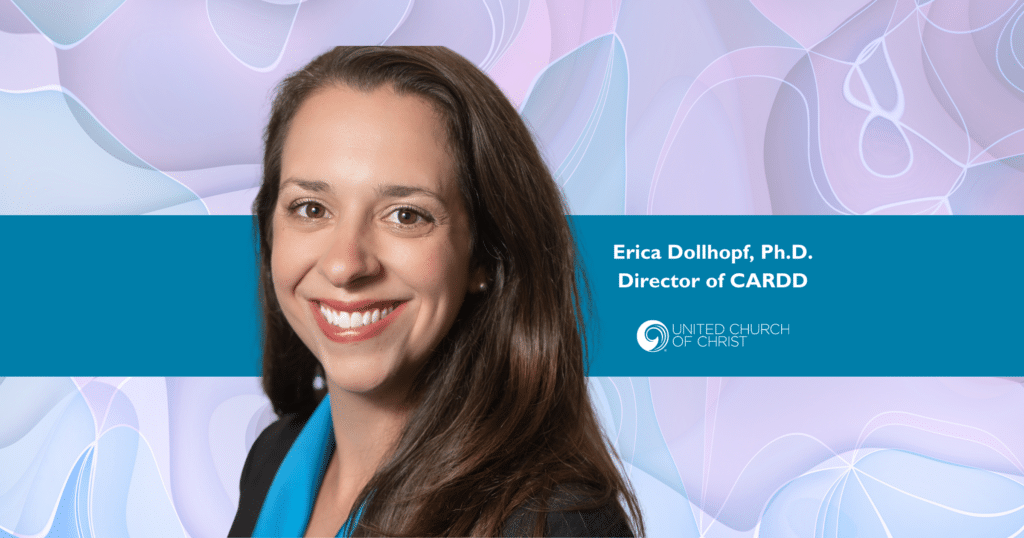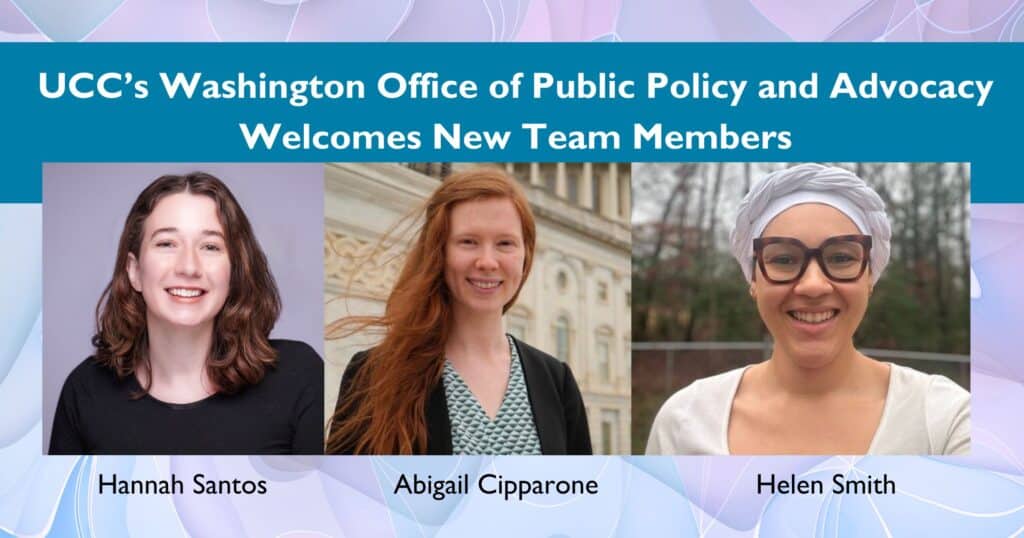General Synod sparks interest in UCC
On the heels of a General Synod that dramatically spiked the church’s national visibility, inquiries have come from a variety of sources, according to the Rev. David C. Schoen, the UCC’s minister for evangelism.
Additionally, three significantly large congregations representing three different regions of the country — with a combined membership of nearly 12,000 parishioners — expressed an interest in joining the UCC prior to Synod.
“Interest has been all over the map,” Schoen said. “The interest has ranged form people wanting to plant a church to churches wanting to affiliate with the UCC to groups of people wanting to know about the UCC and how they might become affiliated with the UCC as a new church start. It has all been very exciting.”
Roughly 80 percent of the representatives on the church’s 884-member General Synod voted to approve an historic resolution affirming same-gender marriage equality July 4 during its 25th biennial meeting in Atlanta, becoming the first major Protestant denomination to do so.
The resolution calls on the denomination’s 5,750 churches to consider wedding policies “that do not discriminate against couples based on gender.” It also asks churches to consider supporting legislation granting equal marriage rights to gay and lesbian couples and to work against laws banning gay marriage.
The vote garnered the church unprecedented national media attention and served to significantly increase the UCC’s visibility nationally. The UCC’s website has received more than 500,000 hits since Synod’s commencement, and the website’s “find a church” link has received more than 50,000 hits alone.
But Schoen this week said the surge of interest in the church is not so much the result of the vote favoring same-gender marriage equality as it is a recognition of the UCC’s justice-oriented mission generally and the church’s willingness to speak prophetically to society at-large.
“It has to do with the necessary and needed voice that we provide to the religious landscape,” he said. “What I am hearing from people is that the interest in us right now is a result of the UCC’s witness, our justice-mindedness and our courage and willingness to speak to culture and to take risks. People are looking for a welcome and an embrace that is wider.”
Interest in the UCC is not an altogether new phenomenon since General Synod, said Schoen, who said the church has been focused on new church development for several years. Since 2003, 90 new congregations have joined the denomination or began discussion about doing so.
“There has been a new church development ball rolling for a couple of years now,” he said. “So this has definitely been in the works. There has been a steadily-growing impetus for this.”
Since Synod, which concluded July 5, significant interest has come from the Southeast Conference, host of the biennial event. The Rev. Timothy C. Downs, Southeast Conference minister, said the UCC’s voice is especially unique in the South and so the church is especially sought after there.
“I think that in the South there is a style of religious life that is often very sectarian. I call it my way or the highway,” Downs said. “What we do is model what I consider to be a biblically sound diversity in which we welcome people of very differing theological convictions from different walks of life and people of different races, genders and sexual orientations. We worship a God who shows no partiality.”
Downs said Southeast Conference leaders are in “active” conversations with two congregations that began prior to Synod. But Synod, Downs said, “provided action and impetus for those two conversations to continue.” Since Synod, three additional congregations have made contact with the Conference, Downs said, and expressed interest in exploring the possibility of affiliating with the UCC.
“We are positioning ourselves for growth,” Schoen said. “It is not an overnight process, so in that sense the numbers can be difficult on a yearly basis. But the future certainly looks positive. Critical to new church development is a clear understanding of core values and I think that is what people are seeing in the UCC right now. That is what is driving a lot of the enthusiasm.”


